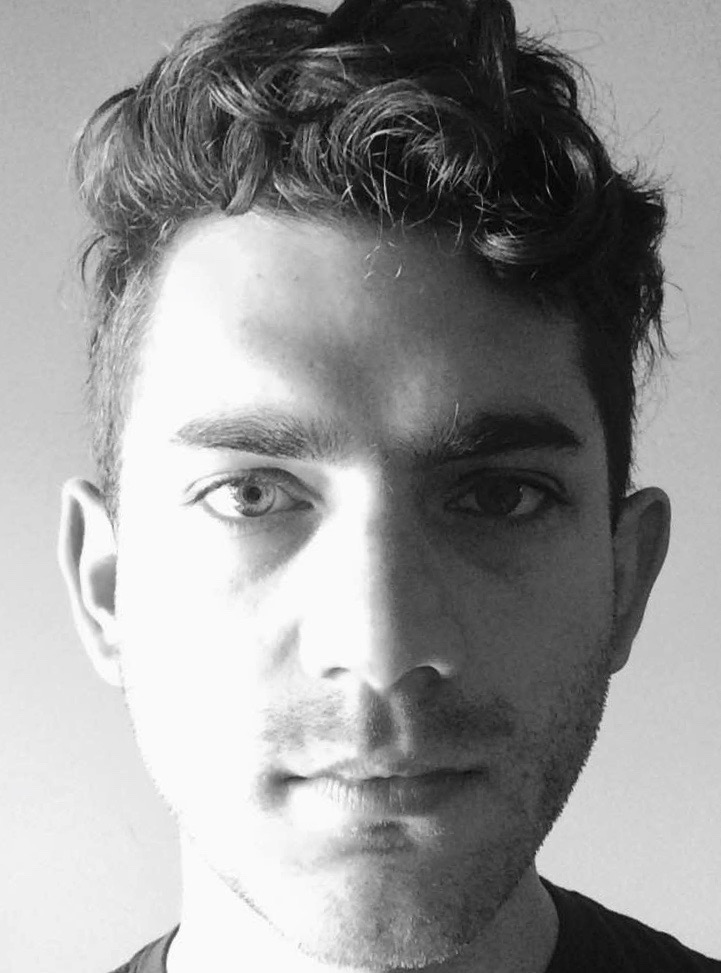
NEW Faculty Profile: Josh Scannell
On behalf of the School of Media Studies here at The New School, we’d like to welcome our new faculty member, Josh Scannell, who joins us this fall as Assistant Professor of Media Studies. Josh will be teaching Media Theory and Media Criticism during the Fall 2019 semester. Learn more about Josh’s experiences and background here.

To kick off the NEW year, we asked Josh a few questions. Join us in welcoming Josh to The New School! #100YearsNew
Q: What drew you to The New School?
A: I’ve been drawn to The New School since I learned about its history when applying to colleges. The institution has a proud history of intellectual radicalism, from its roots as a free institution whose scholars refused Columbia University’s loyalty oath, to its function as the University in Exile during Europe’s fascist period, to its contemporary role as a hotbed for nontraditional intellectual activity. That tradition and its manifestation in relentlessly creative work by students and faculty alike was a natural magnet for me.
Q: What strengths/skills do you bring to the School of Media Studies and the larger university community?
A: I’m an interdisciplinary scholar, which fundamentally informs my approach to media scholarship. My focus is on theory, and in particular on making sense of how contemporary and emerging digital technologies transform and are transformed by the social world in which they are embedded and engaged. To that end, my research is especially concerned with the ways mass digitality has subtended and extended the American carceral state – a formation that has prisons, police, and other carceral technologies at the base of a socio-economic hierarchy that systematically exploits and oppresses people of color, women, queer and disabled folks. My training is in sociology, so I bring “sociological” (very broadly construed) concerns and frames to my analysis of media technologies. By way of example, something that I’ve been thinking about is the way in which Seamless depends on the legal and economic vulnerability of delivery drivers to maintain its profit margins and logistics networks while appealing to a supposed privileged laziness of its customer base. I don’t mean that as an insult to people that use the service, but as an invitation to look carefully at the messaging the next time you see their ads on the train. I try to ground these concerns in a relentlessly intersectional approach to research and scholarship, and am strongly informed by the Black Radical Tradition, Queer Theory, and Feminist Science and Technology Studies (among other schools).
Q: As you may know, this year, as it’s the university’s centennial, we’ve been continuously thinking about what the future holds for TNS. What do you foresee being some of the biggest changes/challenges in the media landscape in the next 100 years? How do you think we can begin tackling some of these topics now?
A: My honest answer to this question is that I have no idea what the media landscape will look like in twenty years, much less 100. If we’re talking about a hundred years into the future, then ecology becomes a central prism through which we have to engage with media. That is to say that the transformations and traumas driven by climate change are going to inevitably catalyze enormous changes to media infrastructures, distribution networks, and consumption platforms that we can’t even conceive of now.
More immediately, the current moment feels like an inflection point. The social world is so thoroughly mediated that it’s impossible to draw even a fuzzy line between the “real” and “the media.” That the entities that control that mediation are increasingly monopolistic and powerful speaks to the very dark underbelly of constant connection. We all know how that works in terms of social media, but there are mundane places to look as well. When your refrigerator is talking to its parent company about your eating habits using server space rented out from Amazon, then your digestive tract is a data generator for analytics, which is to say a value producer for big tech. Yum?
In terms of how to begin tackling some of these topics now, my approach is to center critical voices. Some scholars who are doing tremendous work include Safiya Noble and Virginia Eubanks, who show how tools we might take for granted as neutral (google, and social service providers respectively) exacerbate racism and inequality. Sarah Roberts has demonstrated the toll that the hidden economy of content moderation takes on those people and communities that earn their livelihoods staring at and scrubbing images, messages, etc. that most people can’t bear to imagine. Jennifer Rhee has convincingly traced how the demand for AI and robotic labor drives dehumanization, and Ruha Benjamin has brilliantly argued the internal connection between racializing hierarchy and technology, what she calls “the new Jim Code.” There is an enormous amount of critical work that forces us to take a hard look at the current state of the mediated social world. Starting from that critical position, hopefully, provides the ground that forces us to consider and imagine a world otherwise, and to offer the creative energy to realize it.